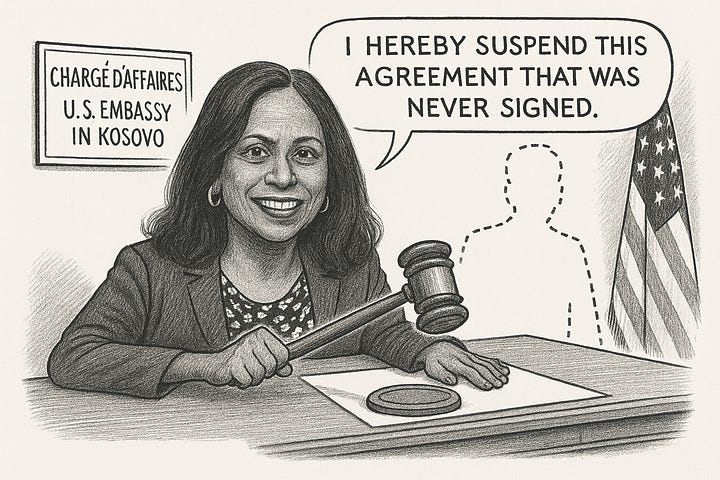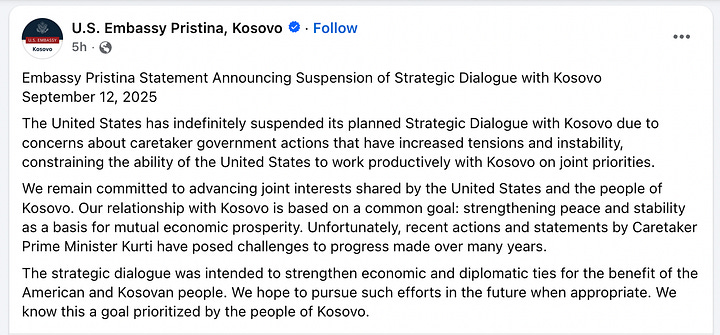When Diplomacy Becomes Deception: Kosovo’s Strategic Dialogue Myth
The U.S. Embassy suspended Kosovo’s “Strategic Dialogue”, a phantom accord never signed, weaponising illusion to destabilise democracy and empower Belgrade’s proxies under the guise of diplomacy.
The U.S. Embassy in Kosovo on Friday issued a statement1 of unusual sharpness: the “indefinite suspension” of what it called the Strategic Dialogue with Kosovo, citing the caretaker government’s actions as a source of instability. The announcement was immediately echoed by major international outlets. But it carried a hollow ring: there is no official confirmation from Washington—neither from the State Department nor the White House. A closer look reveals a disturbing paradox. What has been suspended is a process that never formally existed.


Let us be precise. The so-called Strategic Dialogue was never signed. It was hinted at, floated in speeches, spoken of in the future tense. President Vjosa Osmani herself said in January 2025 that an agreement “would soon be finalized” after meeting Deputy Secretary Richard Verma. But “would be finalized” is not the same as “has been signed.” No act of implementation exists. No calendar. No enforcement mechanism. No public text. The embassy’s declar…



